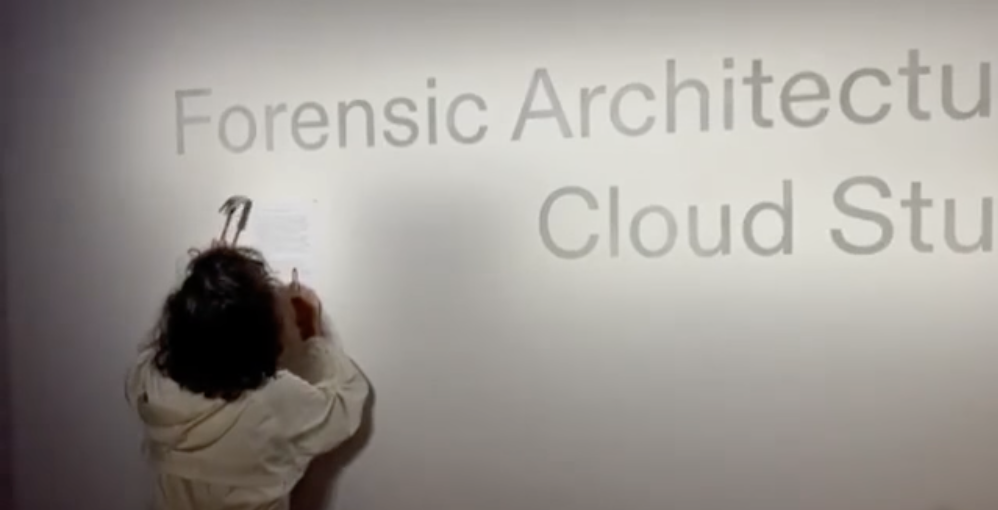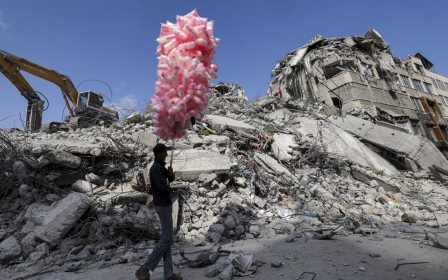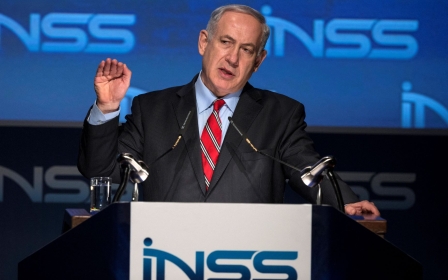Manchester University reinstalls pro-Palestine note at exhibition after protests

The University of Manchester has reversed its decision of removing a statement of solidarity with Palestine from an exhibition at its Whitworth gallery following protests by a pro-Palestine group.
Earlier this week, the university announced its decision to remove a statement pinned to the entrance of an exhibition by Forensic Architecture, showcased in the university’s Whitworth gallery.
Forensic Architecture responded by demanding the removal of their exhibition from the display.
The exhibition by the Turner prize-nominated group examined how power structures shape the air we breathe.
The part of the exhibition which triggered controversy showed how Israeli military action in the occupied Palestinian territories has toxic environmental effects due to chemical warfare such as tear gas and bomb clouds.
New MEE newsletter: Jerusalem Dispatch
Sign up to get the latest insights and analysis on Israel-Palestine, alongside Turkey Unpacked and other MEE newsletters
At the entrance of the exhibition, a pinned note read: "Forensic Architecture stands with Palestine," before proceeding to denounce Israel’s military operations in Gaza and its “ethnic cleansing” of Palestinians.
"We believe this liberation struggle is inseparable from other global struggles against racism, white supremacy, antisemitism, and settler-colonial violence and we acknowledge its particularly close entanglement with the Black liberation struggle around the world," read the note.
In a letter addressed to the University of Manchester last month, UK Lawyers for Israel (UKLFI) said that the statement pinned to the exhibition seemed “designed to provoke racial discord” by trying to “falsely equate Israelis with white supremacists”.
Eyal Weizman, the director of Forensic Architecture, told Middle East Eye on Tuesday that the investigative group demanded the closure of the exhibition "with immediate effect" after learning of the removal.
He explained that the previously removed statement "refers to well-documented human rights violations in Palestine, and uses terms and language endorsed by major human rights groups."
Protests
On Wednesday, protests were organised by the pro-Palestine group, Palestine Action, which also accumulated 13,000 letters addressed to the university via its online platform.
Following the immense response, the university announced that it will be reversing its decision, keeping the statement pinned to the entrance of the exhibition.
“The university, as a non-political organisation, has tried to balance extremely complex issues raised by the exhibition, but we believe that the worst outcome for all parties concerned would have been to close this exhibition for an extended period of time,” read the statement released by Whitworth on Wednesday.
“Museums and galleries have traditionally been a space of experimentation and challenge, and the Whitworth is a place where we may be able to debate, discuss and disagree well, within a safe and empathetic environment.”
The renewed decision was met with jubilation by both members of Forensic Architecture and Palestine Action.
UKLFI said it was “considering all options” following the reinstallation of the note at the entrance of Forensic Architecture’s exhibition.
Middle East Eye delivers independent and unrivalled coverage and analysis of the Middle East, North Africa and beyond. To learn more about republishing this content and the associated fees, please fill out this form. More about MEE can be found here.




